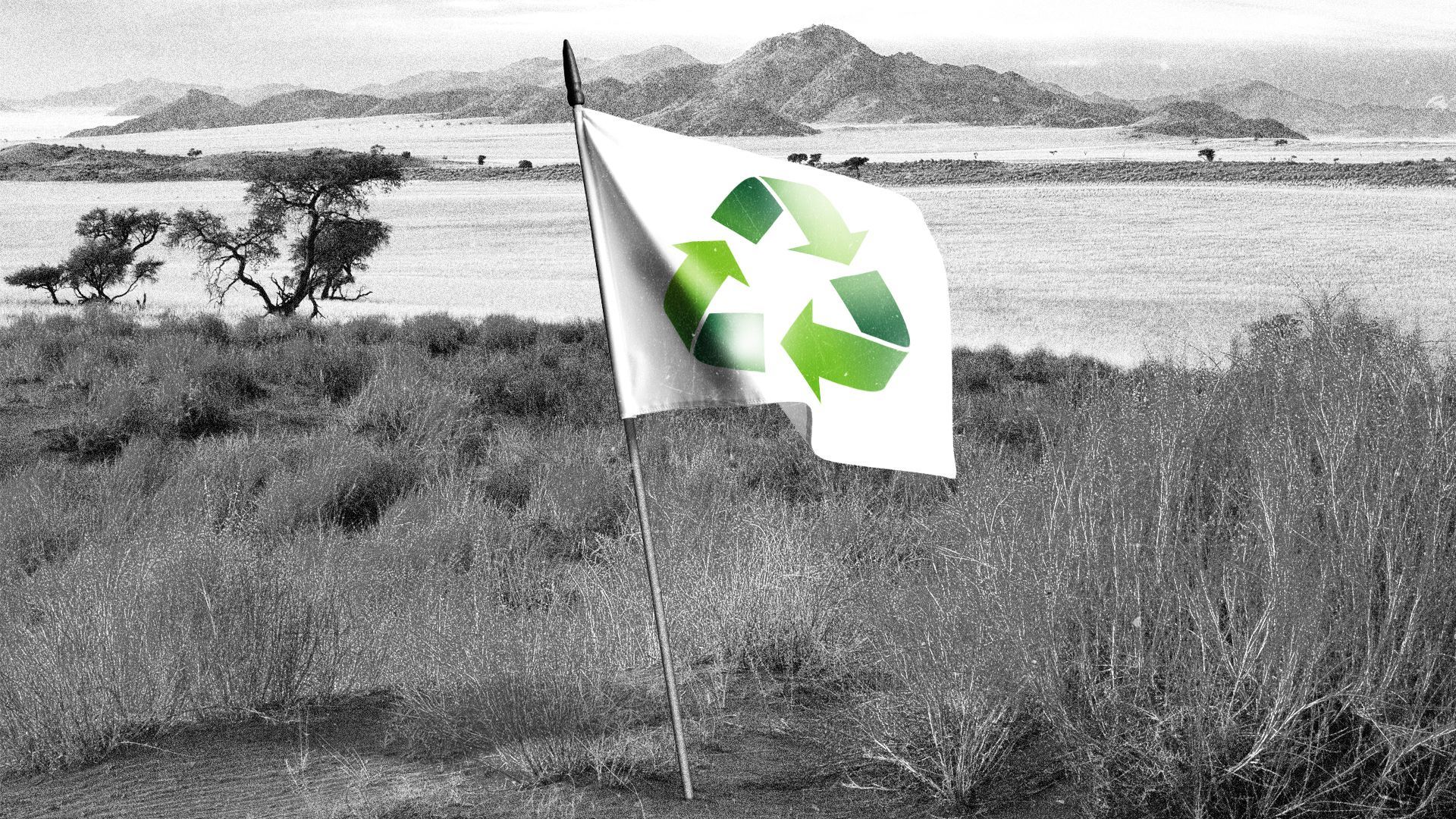The energy debate over "green colonialism" in Africa
Add Axios as your preferred source to
see more of our stories on Google.

Illustration: Sarah Grillo/Axios
Averting the worst effects of climate change will eventually require the entire world to get off carbon, but some critics allege richer countries are trying to halt fossil fuels in poorer countries while continuing to drill at home.
Why it matters: New policies that aim to restrict fossil fuel development in poorer countries in the name of climate change are on a collision course with those nations' need for energy-fueled growth and development.
What's happening: At the United Nations climate conference earlier this year, the U.S., U.K. and other countries promised to end international financing for fossil fuel development.
- For climate activists, the pledge was one of the most promising outcomes of COP26, cutting off money that might be used to support the building of coal and natural gas plants.
The catch: To some critics, however, the promise smacked of "green colonialism," as rich nations preemptively cut off desperately poor countries from the cheap fossil fuels that helped make them rich in the first place.
- "This is already leading to harmful policies that will hurt millions of poor Africans by slowing down their continent’s economic development while doing little, if anything, to help fight climate change," write Todd Moss and Vijaya Ramachandran in Foreign Policy this week.
The other side: The more than 1 billion people in sub-Saharan Africa are responsible for less than 1% of cumulative global carbon emissions, but climate activists argue the region's projected population growth means that a green transition needs to happen now to avert a much warmer future.
- A report from the Wilson Center this year estimated if Africa's per-capita CO2 emissions by 2060 — when the continent will hold a projected 3 billion people — were to rise to the level of India's today, its total CO2 emissions would equal those of the U.S. today.
Yes, but: While unchecked climate change would cause tremendous economic and social damage to the global poor, even tripling electricity consumption in sub-Saharan Africa with lower-carbon natural gas — the most abundant fossil fuel on the continent — would equal only 0.62% of annual global carbon emissions.
- More access to natural gas would also upgrade large-scale agriculture through synthetic fertilizer use, while clean-burning natural gas stoves would help save some of the 3.8 million people who die each year from the effects of indoor air pollution created by burning wood, coal and animal dung.
By the numbers: Extreme poverty and lack of access to energy go hand in hand.
- Average per capita electricity consumption in the developed countries of the OECD is more than 50 times higher than it is in sub-Saharan Africa (outside of South Africa). By one estimate Californians use more electricity to power video games than all 53 million people in Kenya do for everything.
- 800 million people around the world still lack access to electricity, and the increase in extreme poverty caused by the COVID-19 pandemic may have caused that number to rise by another 100 million.
- Blocking financing of fossil fuel development "stands to forestall Africa’s attempts to rise out of poverty," Yoweri K. Museveni, the president of Uganda — where just 41% of the population has access to electricity — wrote in October.
Between the lines: Critics say moves to cut off fossil fuel financing in poorer countries amount to hypocrisy from rich nations that are continuing to tap their own sources of natural gas and oil.
- Norway was a leader in the push to end international fossil fuel financing, yet crude oil and natural gas account for nearly half of the country's exports.
- Weeks after COP26, the Biden administration announced it would release 50 million barrels of oil from the U.S. Strategic Petroleum Reserve to blunt the effects of high fuel prices on American consumers.
- Our thought bubble: In effect, some rich nations seem to be exporting the hard political choices around climate change away from their own citizens — and voters — to those who can least afford it and can't push back at the ballot box.
The bottom line: Averting dangerous climate change and ending extreme poverty are two of the most important challenges the world faces in the future, but fighting one shouldn't come at the expense of the other.
